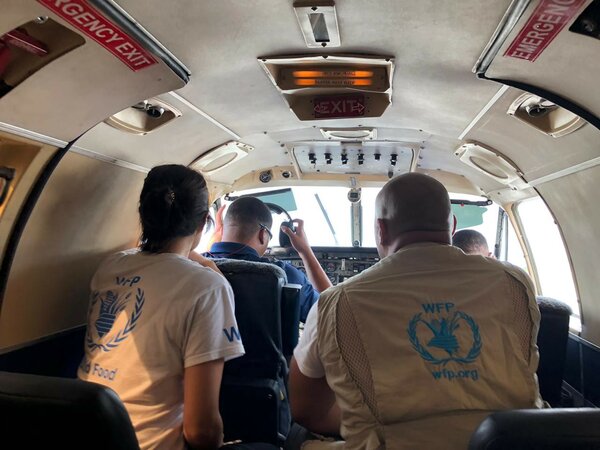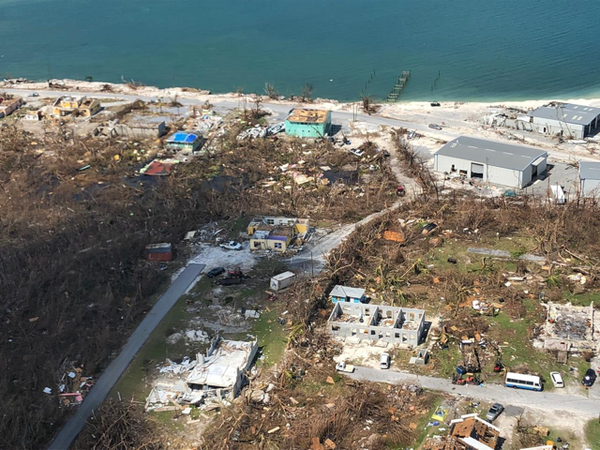WFP lends expertise before and after Hurricane Dorian


The World Food Programme (WFP) is lending its emergency expertise to support response efforts in the Bahamas, which is reeling from its worst-ever hurricane.
Dorian caused widespread devastation after making landfall on 1 September. The official death toll of 30 is expected to rise, with thousands of people believed to be missing.
WFP staff are embedded in a team led by the Caribbean Disaster Emergency Management Agency, which is assessing damage and areas of greatest need.
Meals and equipment flown in
From the UN hub in Panama, WFP is organizing an airlift of storage units, generators and prefab offices for two logistics hubs being established on the main islands. It is also providing satellite equipment to ensure connectivity for emergency responders.
WFP has also bought eight tons of ready-to-eat meals and is arranging their transportation to the Bahamas. This will be followed up by the procurement and distribution of up to 85 metric tons of these meals for the worst-affected communities.

Dorian has destroyed around 13,000 homes and devastated infrastructure, according to the UN's Office for the Coordination of Humanitarian Affairs. Pre-impact projections indicate that more than 76,000 people in the Abaco and Grand Bahama islands may require food and other assistance.
"The Category 5 hurricane was stuck on the islands for two days, and there is no infrastructure capable of withstanding such a scourge," said Regis Chapman, WFP's Head of Programme for Latin America and the Caribbean.
Emphasis on preparedness as well as response
WFP's support in the Bahamas draws from its Barbados Office for Emergency Preparedness & Response in the Caribbean, established in 2018 after hurricanes Maria and Irma devastated large parts of the Caribbean.
The hub allows for swift response as well as pre-emptive action.
In advance of Hurricane Dorian, WFP was able to rapidly deploy technical experts in food security, logistics and emergency telecommunication, to support a rapid needs assessment.
Assessment teams also conducted an initial aerial reconnaissance mission on 4 September, with the aim of putting teams on the ground as soon as possible.
